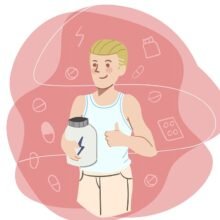Uncovering the Causes and Symptoms of Hyperthyroidism: A Comprehensive Guide
Introduction
Hyperthyroidism is a condition where the thyroid gland produces excessive amounts of thyroid hormones, leading to a range of symptoms and complications. It is a common endocrine disorder that affects millions of people worldwide. In this comprehensive guide, we will delve into the causes and symptoms of hyperthyroidism, helping you understand this condition better and take the necessary steps towards diagnosis and treatment.
Causes of Hyperthyroidism
Hyperthyroidism can be caused by a variety of factors, including:
Autoimmune Diseases
* Graves’ disease: This is the most common cause of hyperthyroidism, accounting for approximately 70-80% of cases. Graves’ disease is an autoimmune disorder in which the immune system mistakenly attacks the thyroid gland, causing it to produce excess thyroid hormones.
* Hashimoto’s thyroiditis: This is another autoimmune disorder that can cause hyperthyroidism, although it is less common than Graves’ disease.
Thyroid Nodules
* Benign nodules: These are growths on the thyroid gland that can produce excess thyroid hormones, leading to hyperthyroidism.
* Malignant nodules: In rare cases, thyroid nodules can be cancerous and produce excess thyroid hormones.
Iodine Deficiency
* Iodine is an essential element for the production of thyroid hormones. Iodine deficiency can cause the thyroid gland to produce excess thyroid hormones, leading to hyperthyroidism.
Other Causes
* Radiation exposure: Radiation therapy to the head and neck can cause hyperthyroidism in some cases.
* Pituitary gland disorders: Disorders of the pituitary gland can cause an overproduction of thyroid-stimulating hormone (TSH), leading to hyperthyroidism.
* Thyroiditis: This is inflammation of the thyroid gland, which can cause the release of stored thyroid hormones, leading to hyperthyroidism.
Symptoms of Hyperthyroidism
The symptoms of hyperthyroidism can vary in severity and may include:
Physical Symptoms
* Weight loss: Despite eating normally, people with hyperthyroidism may experience significant weight loss.
* Fatigue: Hyperthyroidism can cause feelings of tiredness and lethargy.
* Heat intolerance: People with hyperthyroidism may experience heat intolerance, which can make them feel hot even in cool environments.
* Tremors: Uncontrollable trembling or shaking is a common symptom of hyperthyroidism.
* Increased heart rate: An increased heart rate is a hallmark symptom of hyperthyroidism.
Mental Health Symptoms
* Anxiety: Hyperthyroidism can cause feelings of anxiety and stress.
* Mood swings: People with hyperthyroidism may experience mood swings, irritability, and emotional instability.
* Difficulty sleeping: Hyperthyroidism can disrupt sleep patterns, leading to insomnia and daytime fatigue.
Diagnosis and Treatment
Diagnosing hyperthyroidism typically involves a combination of physical examination, medical history, and laboratory tests. The treatment of hyperthyroidism depends on the underlying cause and the severity of the symptoms.
Laboratory Tests
* Thyroid function tests: These tests measure the levels of thyroid hormones in the blood, including T4 and T3.
* Thyroid-stimulating hormone (TSH) test: This test measures the level of TSH in the blood, which can help diagnose hyperthyroidism.
* Radioactive iodine uptake test: This test measures the amount of radioactive iodine absorbed by the thyroid gland, which can help diagnose hyperthyroidism.
Treatment Options
* Medications: Antithyroid medications such as methimazole and propylthiouracil can help reduce the production of thyroid hormones.
* Radioactive iodine therapy: This is a treatment option for Graves’ disease and other causes of hyperthyroidism.
* Surgery: In some cases, surgery may be necessary to remove the thyroid gland or a thyroid nodule.
Conclusion
Hyperthyroidism is a common endocrine disorder that can cause a range of symptoms and complications. By understanding the causes and symptoms of hyperthyroidism, you can take the necessary steps towards diagnosis and treatment. It is essential to work closely with your healthcare provider to develop a treatment plan that addresses your specific needs and helps manage your symptoms.


